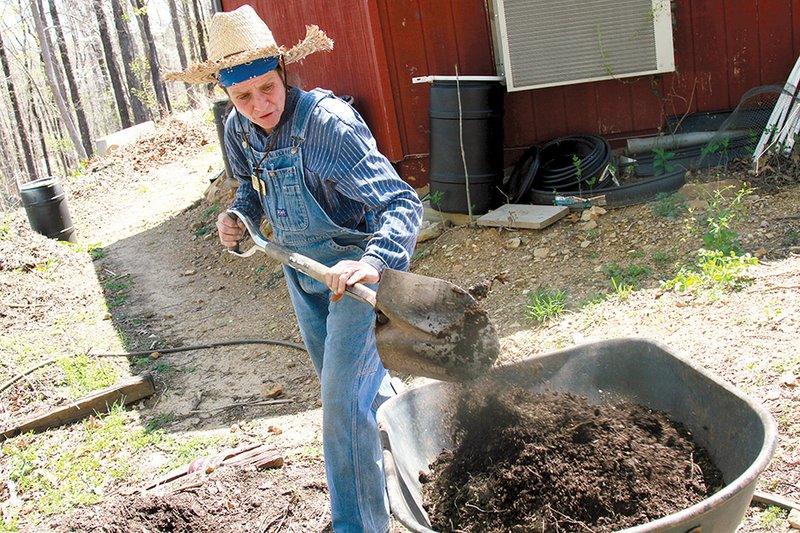MOUNTAIN VIEW — The relationship between garden and kitchen does not have to be a one-way street. While getting fresh fruits, vegetables and herbs for cooking is an obvious transaction, waste from the kitchen can be beneficial in the garden as well.
At the Ozark Folk Center in Mountain View, chief herbalist and head gardener Tina Marie Wilcox said the park aims to be sustainable by growing some of its own herbs and spices for The Skillet Restaurant, the on-site restaurant featuring traditional Southern cooking and weekend buffets, then using the waste from the restaurant as compost for plants at the folk center.
“Our cooks are constantly out there picking the herbs, and they will be picking vegetables, too,” Wilcox said. “We get to use material from the restaurant for compost, and the cycle continues.”
The Skillet Restaurant serves food such as fresh herb grilled salmon and shrimp, chipotle grilled chicken sandwiches and stuffed bell peppers, often utilizing park-grown plants for sides and seasoning.
Additionally, the restaurant occasionally hosts herbal-event meals designed around specific herbs and native plants, such as the Sumptuous Herb Harvest Supper, an educational three-course meal in October planned by the Herb Society of America’s Ozark Unit.
In an area right off the beaten path of the craft village, a gate leads to several piles of compost from the restaurant. Wilcox takes care to turn over the mixture of food waste, soil and other organic components to make sure the compost will be ready to utilize when the plants need it.
Compost is organic matter that has been carefully decomposed, then recycled as an organic fertilizer. The Skillet Restaurant provides scraps of food to be combined with other materials in the folk center’s compost piles.
Similar to making sure ingredients work together in the kitchen, the compost needs certain materials to have the optimum effect on growing plants. Wilcox said nitrogen, carbon and oxygen are among the important elements for compost. These elements — which are found in materials such as leaves, sawdust, plant material, animal fur and manure — work together to provide nutrients for plants.
When Wilcox takes time to turn the compost piles, she makes sure all of the organic matter is mixing well and that oxygen is getting to all parts of the pile. When the compost is ready, she then loads up a wheelbarrow with the compost and takes it to various parts of the center to feed and nourish flowers, vegetables and herbs.
In addition to the herb garden used by the kitchen, the Ozark Folk Center has several other areas that feature plants. These include dye and textile plants next to the spinning shop, Butterfly Hill below the administration building, Firecracker Hill outside the gift shop and raised beds between the copper shop and the Smokehouse Snack Bar.
Staff writer Angela Spencer can be reached at (501) 244-4307 or aspencer@arkansasonline.com.
